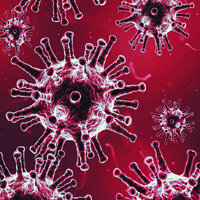The psychological impact of COVID-19 on people suffering from dysfunctional eating behaviours: a linguistic analysis of the contents shared in an online community during the lockdown

Submitted: June 23, 2021
Accepted: September 8, 2021
Published: December 20, 2021
Accepted: September 8, 2021
Abstract Views: 1911
PDF: 655
Appendix: 101
HTML: 31
Appendix: 101
HTML: 31
Publisher's note
All claims expressed in this article are solely those of the authors and do not necessarily represent those of their affiliated organizations, or those of the publisher, the editors and the reviewers. Any product that may be evaluated in this article or claim that may be made by its manufacturer is not guaranteed or endorsed by the publisher.
All claims expressed in this article are solely those of the authors and do not necessarily represent those of their affiliated organizations, or those of the publisher, the editors and the reviewers. Any product that may be evaluated in this article or claim that may be made by its manufacturer is not guaranteed or endorsed by the publisher.
Similar Articles
- Anna Dourdouma, Kathrin Mörtl, The Creative Journey of Grounded Theory Analysis: A Guide to its Principles and Applications , Research in Psychotherapy: Psychopathology, Process and Outcome: Vol. 15 No. 2 (2012)
- Irene Messina, Henriette Löffler-Stastka, Psychotherapists’ perception of their clinical skills and in-session feelings in live therapy versus online therapy during the COVID-19 pandemic: a pilot study , Research in Psychotherapy: Psychopathology, Process and Outcome: Vol. 24 No. 1 (2021)
- Annalisa Tanzilli, Antonello Colli, Laura Muzi, Vittorio Lingiardi, Clinician Emotional Response Toward Narcissistic Patients: A Preliminary Report , Research in Psychotherapy: Psychopathology, Process and Outcome: Vol. 18 No. 1 (2015)
- Alessia Renzi, Rachele Mariani, Michela Di Trani, Renata Tambelli, Giving words to emotions: the use of linguistic analysis to explore the role of alexithymia in an expressive writing intervention , Research in Psychotherapy: Psychopathology, Process and Outcome: Vol. 23 No. 2 (2020)
- Agata Andò, Marzia Di Girolamo, Claudia Pignolo, Alessandro Zennaro, Luciano Giromini, Amedeo Minichino, Adriana Salatino, Rosalba Morese, Personality features and vulnerability to stress: a case study on hyperhidrosis , Research in Psychotherapy: Psychopathology, Process and Outcome: Vol. 22 No. 1 (2019)
- Irene Messina, Salvatore Gullo, Omar Carlo Gioacchino Gelo, Cecilia Giordano, Silvia Salcuni, An overview of the Italian contribution to the international multisite SPRISTAD study on psychotherapy training , Research in Psychotherapy: Psychopathology, Process and Outcome: Vol. 22 No. 3 (2019)
- Lylli Cain, Hana Perkey, Sabina Widner, J. Aaron Johnson, Zachary Hoffman, Jenelle Slavin-Mulford, You really are too kind: implications regarding friendly submissiveness in trainee therapists , Research in Psychotherapy: Psychopathology, Process and Outcome: Vol. 21 No. 2 (2018)
- Leandro Martín Casari, Mirta Susana Ison, Beatriz Margarita María Gómez, Personal style of the therapist and personality dimensions in a sample of Argentinian therapists , Research in Psychotherapy: Psychopathology, Process and Outcome: Vol. 22 No. 2 (2019)
- Diego Rocco, Alessandro Gennaro, Lorena Filugelli, Patrizia Squarcina, Elena Antonelli, Key factors in psychotherapy training: an analysis of trainers’, trainees’ and psychotherapists’ points of view , Research in Psychotherapy: Psychopathology, Process and Outcome: Vol. 22 No. 3 (2019)
- Alessandro Gennaro, Miguel Goncalves, Inès Mendes, Antònio Ribeiro, Sergio Salvatore, Dynamics of sense-making and development of the narrative in the clinical exchange , Research in Psychotherapy: Psychopathology, Process and Outcome: Vol. 14 No. 1 (2011)
<< < 15 16 17 18 19 20 21 22 23 24 > >>
You may also start an advanced similarity search for this article.

 https://doi.org/10.4081/ripppo.2021.557
https://doi.org/10.4081/ripppo.2021.557





